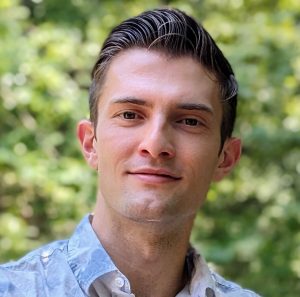Research Overview
Research Overview
The Parr Center for Ethics runs a number of award-winning ethics education programs that strive to help students practice collaborative and respectful dialogue and encourage them to model civil discourse about real-world issues that impact us all. We have worked with teachers across North Carolina and across the nation to integrate philosophy, critical thinking, civics, and ethics into their classrooms. In recent years, we have turned our attention to understanding of the impact of our programs and to contribute to a growing body of educational research about ethics education.
Thanks to new support from the John Templeton Foundation for a project entitled “Can Ethics Education Programs Increase Adolescent Intellectual Humility?,” the Parr Center will be running a series of studies from 2023-2025. This project investigates the role of extracurricular programs in cultivating intellectual humility in adolescents, particularly in relation to ethical and political questions. The research team is composed largely of early-career scholars with a diverse range of skills and expertise, empirical and philosophical. In this way we have taken a multidisciplinary approach to the study of IH and the educational interventions that can promote it. Our three main areas of focus are the National High School Ethics Bowl, Ethical Conversations, and the Intercollegiate Ethics Bowl:
National High School Ethics Bowl is an extracurricular program headquartered at the Parr Center for Ethics at UNC-CH. By engaging high school students in intensive ethical inquiry, the NHSEB fosters constructive dialogue and furthers the next generation’s ability to make sound ethical decisions.
Ethical Conversations is a philosophically-grounded deliberative pedagogy for middle and high school classrooms, designed at the Parr Center for Ethics. Like NHSEB, it aims to provide students with opportunities to discuss ethical and political questions and encourages students to engage in perspective-taking and to show openness to diverse beliefs and values.
APPE Intercollegiate Ethics Bowl is a unique, collaborative experience for undergraduate students that provides valuable educational experience in practical and professional ethics. Students develop ethical understanding of complex, ambiguous, and difficult to resolve issues, as well as key virtues associated with democratic deliberation.
Research Team
Michael Prinzing, Ph.D. // Project Co-Lead PI & Consulting Research Scientist
Michael Prinzing is a philosopher and scientist who studies human flourishing. That is, his research integrates empirical and philosophical methods, with the aim of better understanding what it means to be well and live a good life. Michael received his PhD from the University of North Carolina at Chapel Hill in 2022 and is currently a Postdoctoral Fellow at Baylor University. Along with others at the Parr Center, Michael is organizing a quasi-experimental study to investigate how philosophy outreach programs might promote intellectual and civic virtues.
 Michael Vazquez, Ph.D. // Project Co-Lead PI & Director of Outreach
Michael Vazquez, Ph.D. // Project Co-Lead PI & Director of Outreach
Michael Vazquez is a Teaching Assistant Professor in the Department of Philosophy and Director of Outreach at the Parr Center for Ethics. He received his Ph.D. in Philosophy from the University of Pennsylvania and specializes in ancient philosophy and the philosophy of education. He is committed to forging lasting, democratic, and collaborative partnerships between the academy and the community, and to cultivating the philosophical voices of people of all ages. In addition to the Executive Committee of the National High School Ethics Bowl, he serves on the Public Philosophy Committee of the American Philosophical Association (APA) and the Academic Advisory Board of the Philosophy Learning and Teaching Organization (PLATO). He is also a lecturer in Penn’s Mid-Career Doctoral Program in Educational Leadership.
 Kaitlyn Burnell, Ph.D. // Winston National Center on Technology Use, Brain and Psychological Development
Kaitlyn Burnell, Ph.D. // Winston National Center on Technology Use, Brain and Psychological Development
Kaitlyn Burnell is a Research Assistant Professor with the . She received her Ph.D. in Psychological Sciences at the University of Texas at Dallas, with a concentration in developmental psychology. Her research adapts a developmental focus to study how adolescents and emerging adults use digital technologies, including social media and smartphones. Kaitlyn’s research examines the associations between digital technology use and a wide array of psychosocial outcomes, including well-being and mental health, body image, and risky behavior such as substance use. She has a special interest in applying cutting edge methodological approaches to study these linkages, such as the use of passive sensing, eye-tracking, and observational coding.
 Alex Richardson, Ph.D. // Director, National High School Ethics Bowl
Alex Richardson, Ph.D. // Director, National High School Ethics Bowl
Alex Richardson has been Director of the National High School Ethics Bowl since 2019. A philosopher working at the intersections of ethics, political philosophy, and the philosophy of education, Alex is an award-winning teacher and an advocate for public and pre-college philosophy pedagogy. His research interests are varied, but as of late concern issues in moral and civic education. He received his Ph.D. in Philosophy from the University of Tennessee, Knoxville in 2021, where he wrote a dissertation on the liberal virtue of civility and its role in the non-ideal politics of democratic societies like our own. In addition to his work at the Parr Center, Alex teaches in the Department of Philosophy at Elon University. Alex also serves on Boards of Directors for the Association for Practical and Professional Ethics and Ethics Bowl Canada.

Dashiell Shulman // K-12 Schools Outreach Fellow
Dash is a first-year PhD student in Philosophy. Dashiell is a first-year Ph.D. student in Philosophy. Before joining UNC, he received a B.A. in Philosophy from Amherst College and an M.A. in Philosophy from Northern Illinois University. His primary research interests are in philosophy of language, epistemology, metaphysics, and metaethics. As the K-12 Schools Outreach Fellow, Dash oversees and implements a number of grant-funded programs centered on promoting ethical reflection among middle and high school students.
Sarah Stroud, Ph.D. // Director, Parr Center for Ethics
Sarah Stroud joined the Department of Philosophy and the Parr Center in 2018. She was previously Professor of Philosophy at McGill University, where she taught from 1993 to 2018. She holds degrees from Harvard (A.B.) and Princeton (Ph.D.). She works across central areas of moral philosophy, with a particular focus on foundational issues in moral psychology and moral theory and on the intersection of such issues with metaethics and the philosophy of action. She has published papers on such topics as partiality, moral demandingness and overridingness, lying and testimony, practical irrationality, and the moral implications and significance of personal relationships. She co-edited Weakness of Will and Practical Irrationality (OUP, 2003) and the International Encyclopedia of Ethics (Wiley-Blackwell, 2013).
Walter Sinnott-Armstrong, Ph.D. // Project Consultant
Walter Sinnott-Armstrong is Chauncey Stillman Professor of Practical Ethics in the Department of Philosophy and the Kenan Institute for Ethics at Duke University. He has secondary appointments in the Law School and the Department of Psychology and Neuroscience, and he is core faculty in the Duke Center for Cognitive Neuroscience, the Duke Institute for Brain Sciences, and the Duke Center for Interdisciplinary Decision Sciences. He serves as Resource Faculty in the Philosophy Department of the University of North Carolina at Chapel Hill, Partner Investigator at the Oxford Centre for Neuroethics, and Research Scientist with The Mind Research Network in New Mexico.
 Sarah A. Schnitker, Ph.D. // Project Consultant
Sarah A. Schnitker, Ph.D. // Project Consultant
Dr. Sarah Schnitker is an Associate Professor of Psychology and Neuroscience at Baylor University. Dr. Schnitker studies virtue and character development in adolescents and emerging adults, with a focus on the role of spirituality and religion in virtue formation. She specializes in the study of patience, self-control, gratitude, generosity, and thrift. Schnitker has procured more than $3.5 million in funding as a principle investigator on multiple research grants, and she has published in a variety of scientific journals and edited volumes.
We are grateful to the Intellectual Humility Science project at Georgia State University and the John Templeton Foundation for their generous support for this study.
 |
 |
 |


